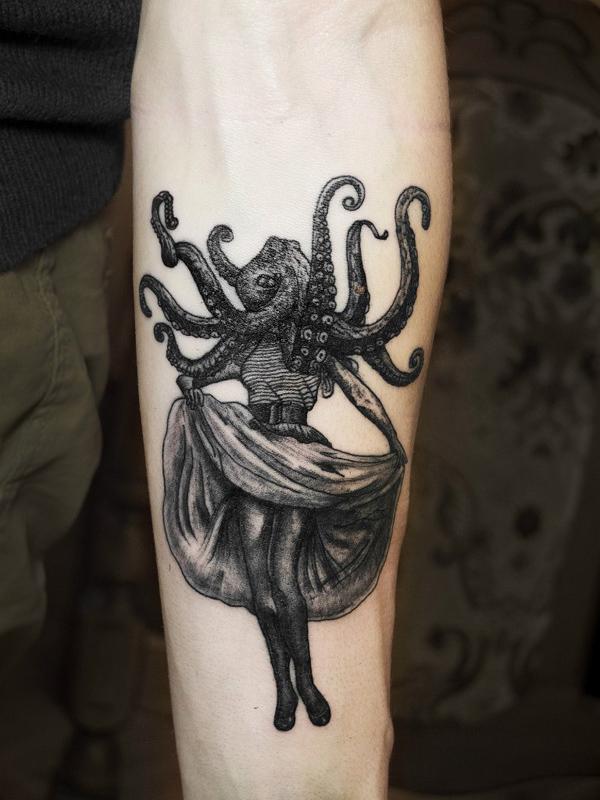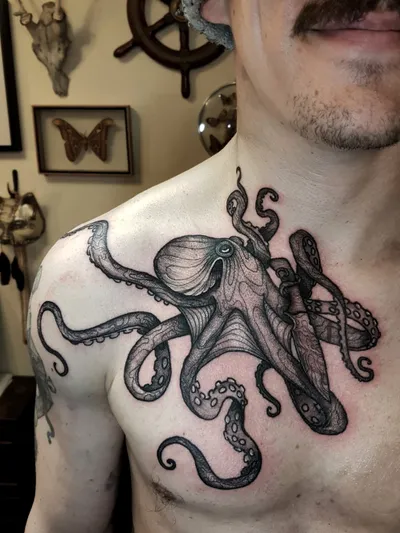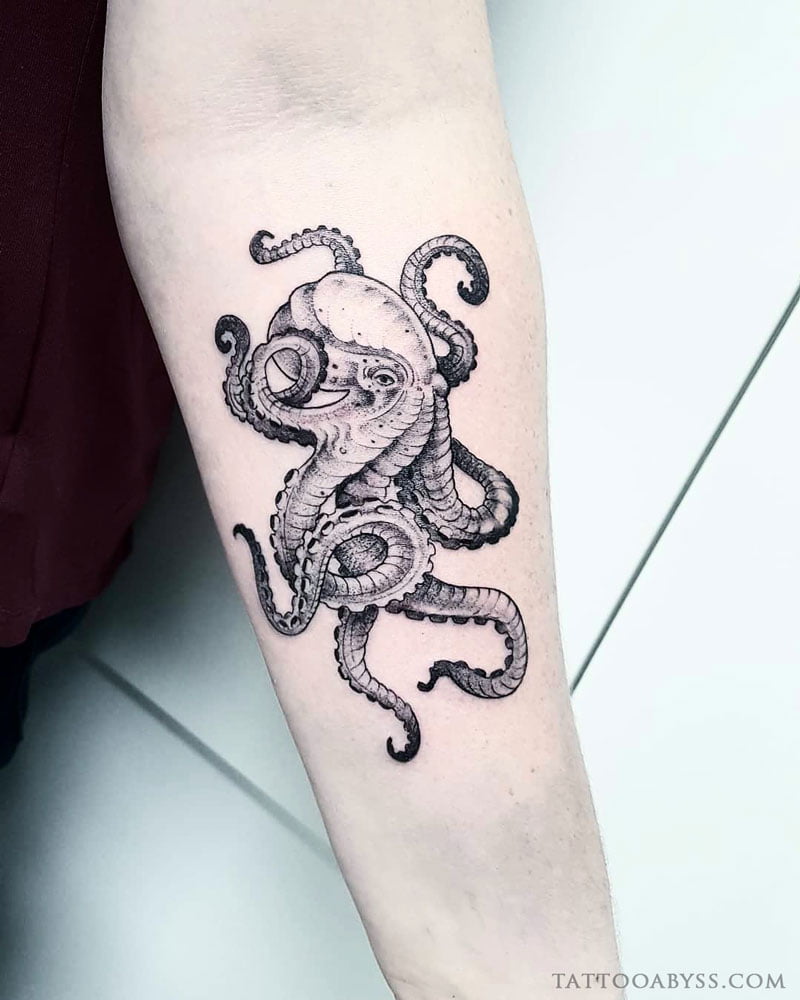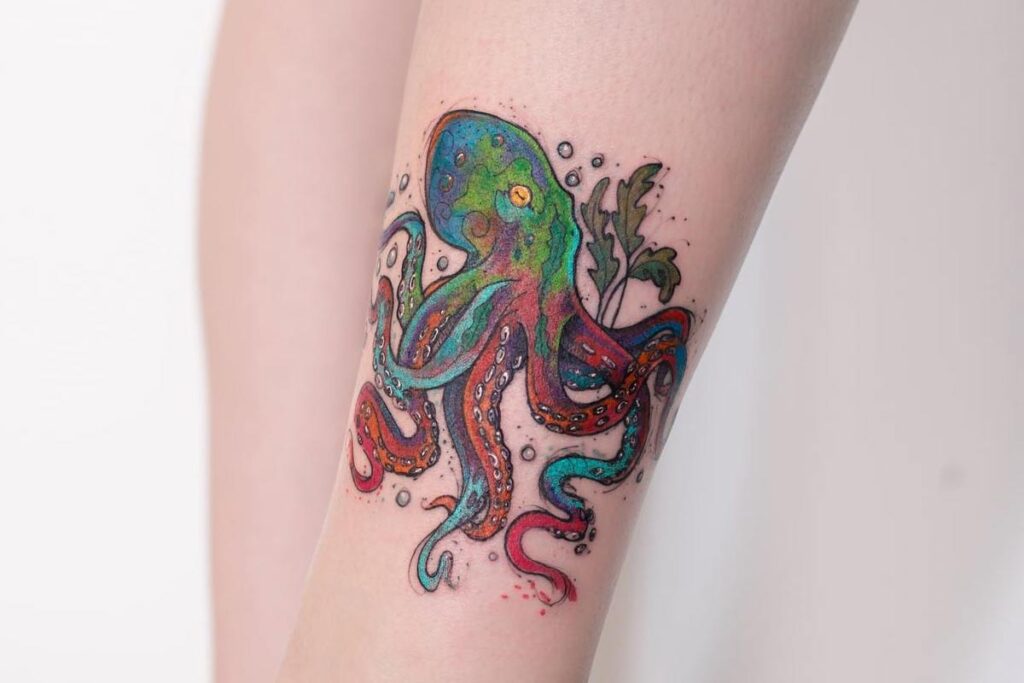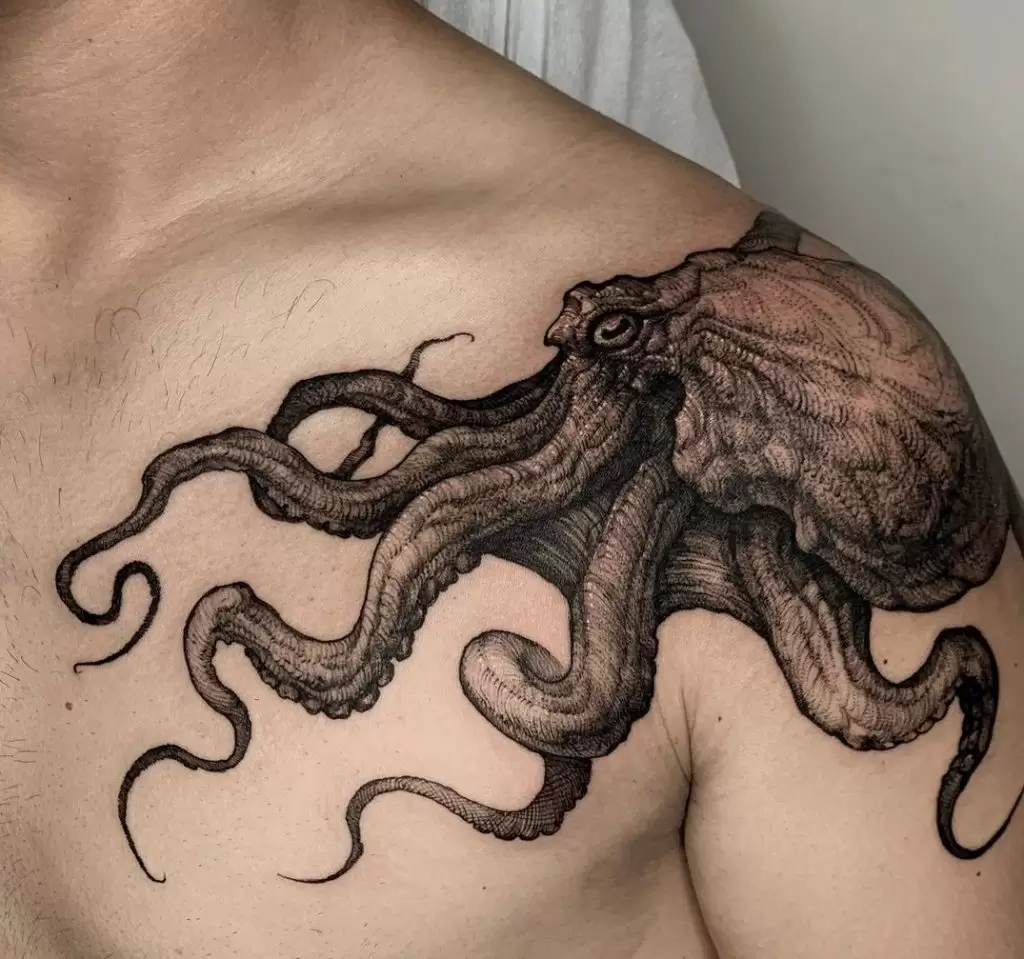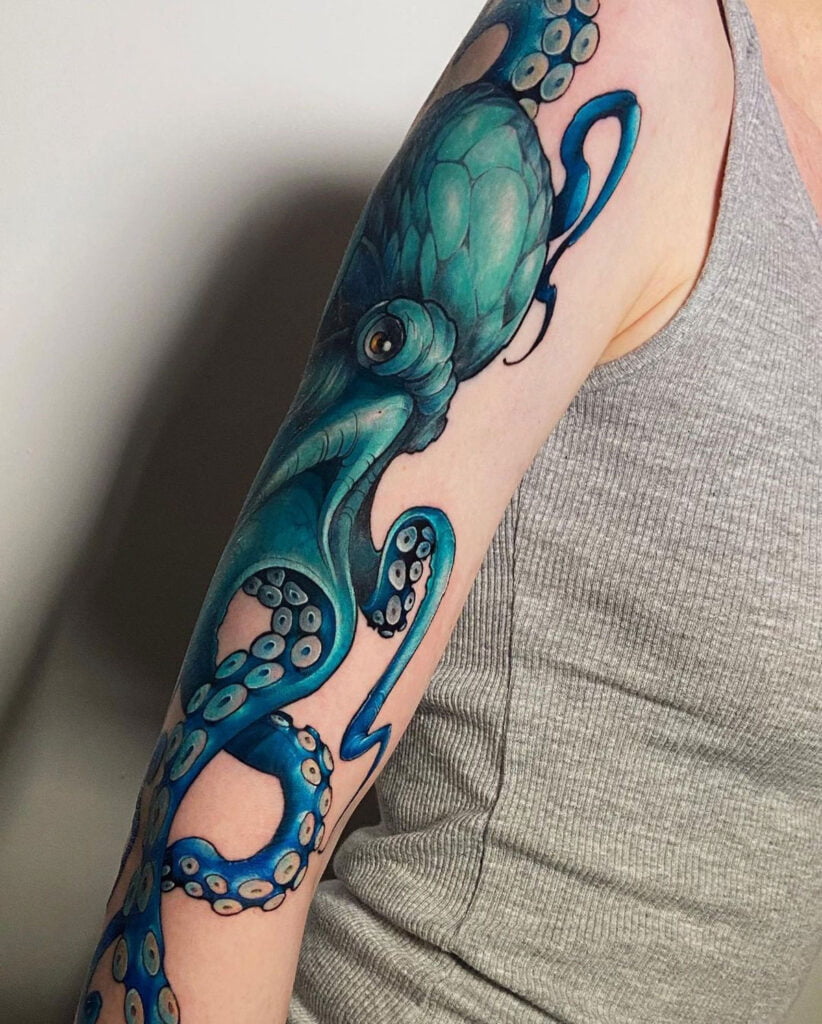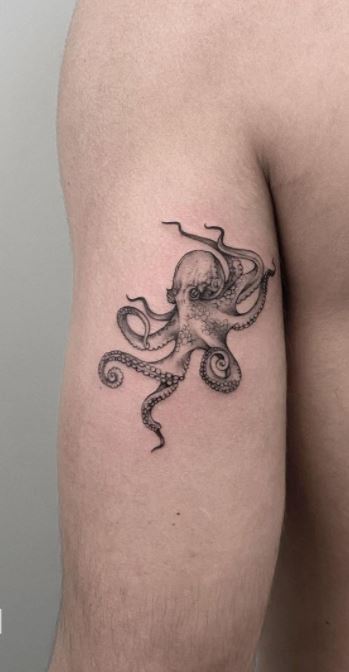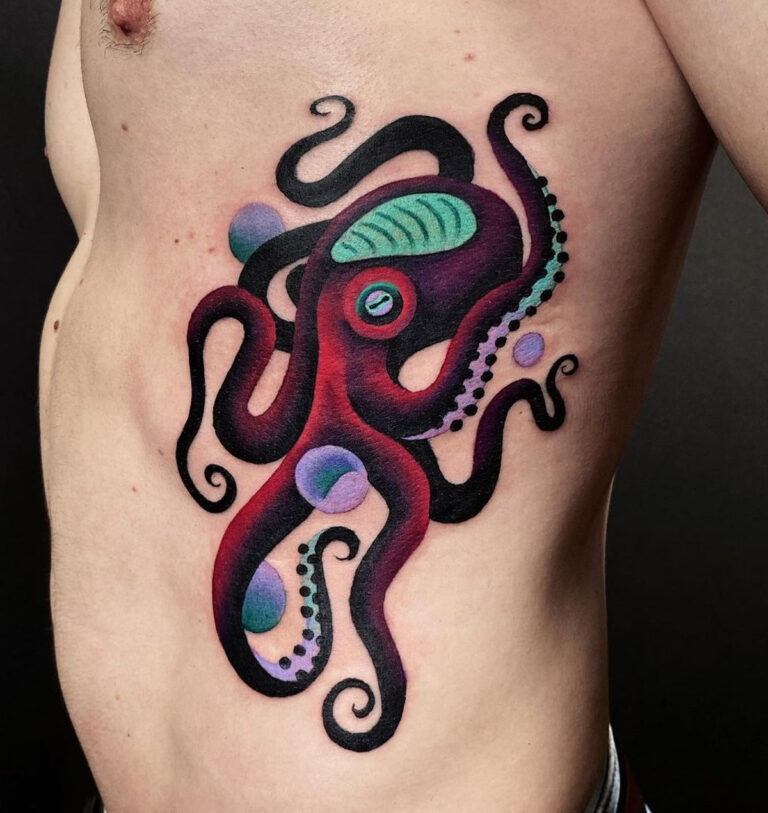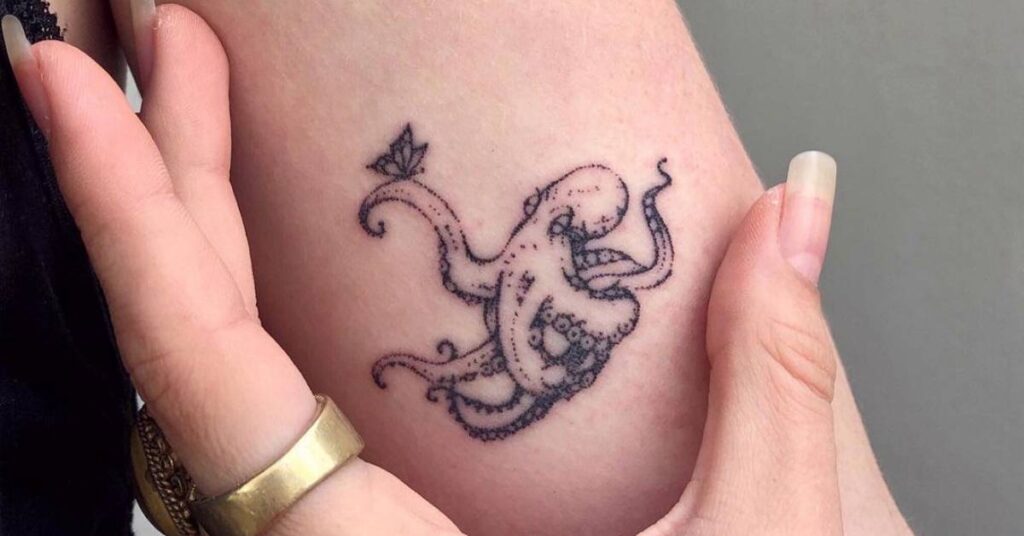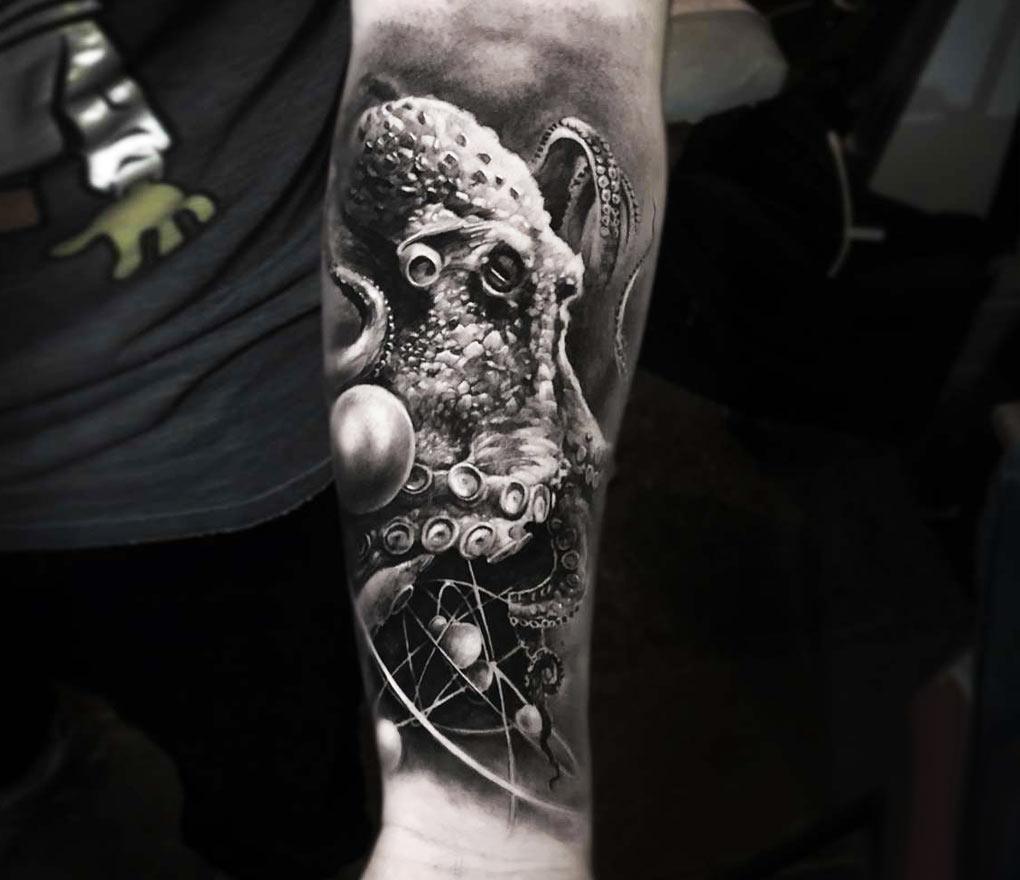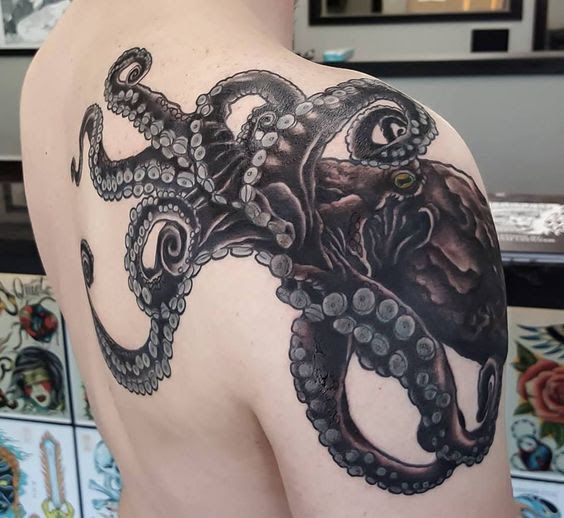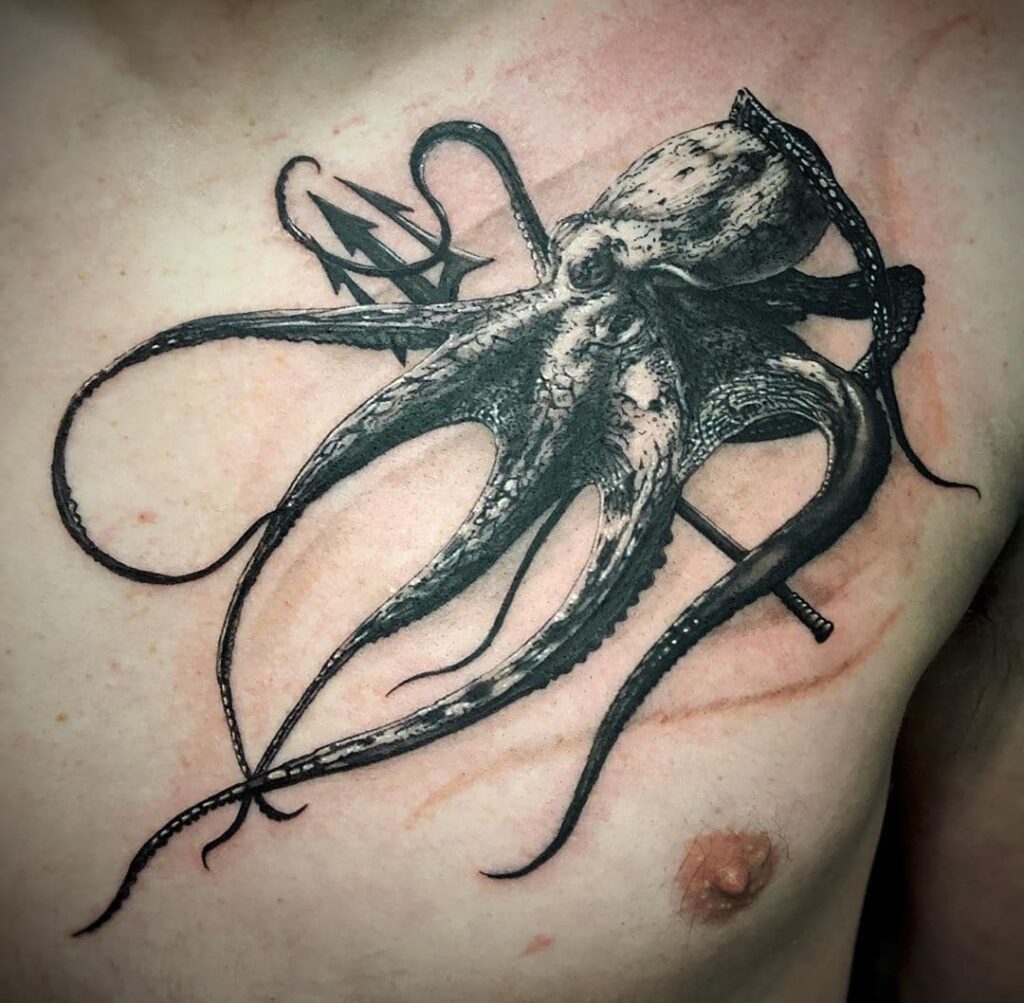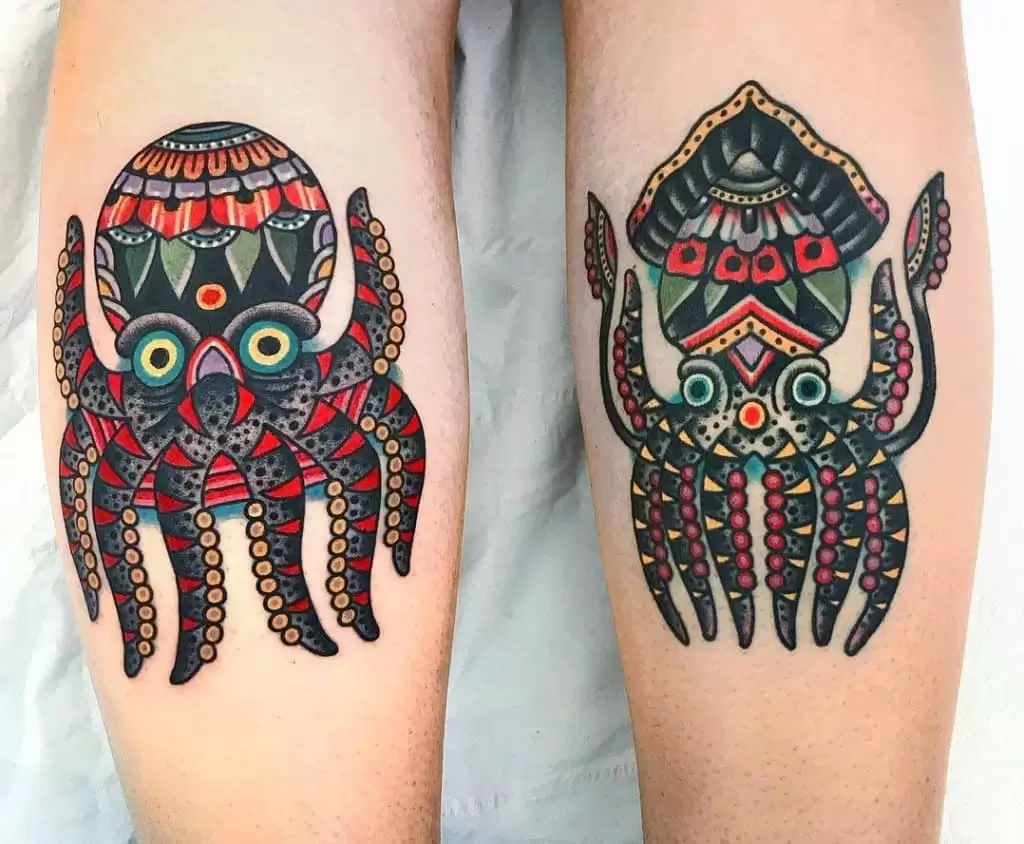Octopuses have been depicted in tattoos for centuries, and their symbolism can vary depending on the culture and context in which they are used. In some cultures, octopuses are seen as symbols of intelligence, creativity, and adaptability. They are also often associated with mystery and the unknown, as they inhabit the deep sea and are known for their ability to camouflage and change their appearance.
In Japanese culture, octopuses are seen as a symbol of good luck and prosperity, and are often depicted in tattoos as a symbol of strength and resilience. In Polynesian culture, octopuses are often seen as a symbol of the ocean and its many mysteries, and are often incorporated into tattoos as a way to pay tribute to the ocean and its inhabitants.
Overall, octopus tattoos can have a wide range of meanings, from strength and adaptability to intelligence and creativity. The specific meaning of an octopus tattoo may vary depending on the context in which it is used, as well as the cultural and personal associations of the person wearing it.
Is it a good idea to get octopus tattoo?
Whether or not it is a good idea to get an octopus tattoo is a subjective decision that depends on your personal preferences and circumstances. Some people may find that an octopus tattoo is a meaningful and attractive way to express their interests or values, while others may prefer a different type of tattoo or may not be interested in getting a tattoo at all.
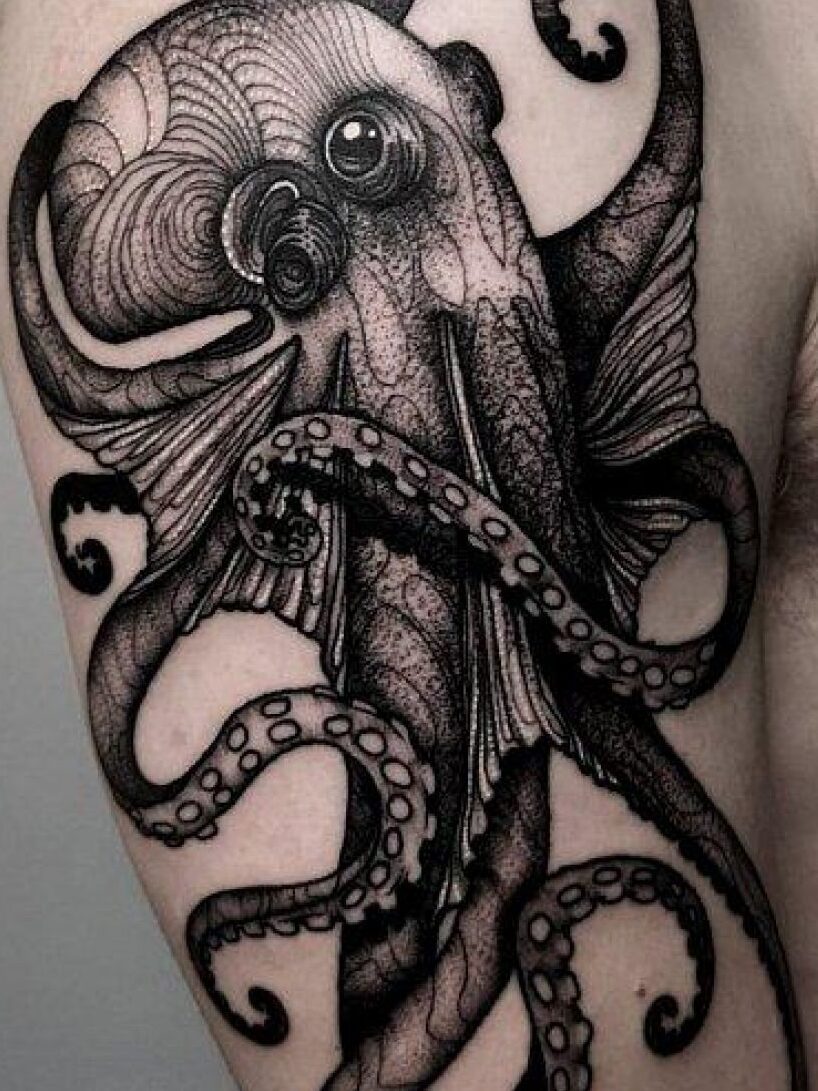
It is important to consider several factors before getting a tattoo, including the design and placement of the tattoo, the potential for pain and discomfort during the tattooing process, and the potential for regret or difficulty removing the tattoo in the future. It is also important to carefully research the tattoo artist or studio where you plan to get the tattoo, as the quality of the tattoo work can have a significant impact on the final result.
If you are considering getting an octopus tattoo, it may be helpful to spend some time thinking about why you want the tattoo and what it will mean to you. You may also want to consider discussing your ideas with a tattoo artist or someone you trust before making a final decision. Ultimately, the decision to get a tattoo, including an octopus tattoo, should be based on your own personal interests and preferences.
What are the best body parts for a octopus tattoo?
The best body parts for an octopus tattoo will depend on your personal preferences and the size and design of the tattoo. Some common body parts for octopus tattoos include the upper arm, back, chest, and leg.
The upper arm is a popular location for octopus tattoos, as it allows for a relatively large tattoo and allows for flexibility in the placement of the design. The back is another option for a larger octopus tattoo, although it may be more painful to tattoo due to the lack of fat and muscle in this area. The chest and leg are also potential locations for octopus tattoos, although these areas may be less suitable for larger designs.
Ultimately, the best body parts for an octopus tattoo will depend on your personal preferences, the size of the tattoo, and your comfort level with the tattooing process. It may be helpful to speak with a tattoo artist about your options and to consider the pros and cons of different locations before making a final decision.
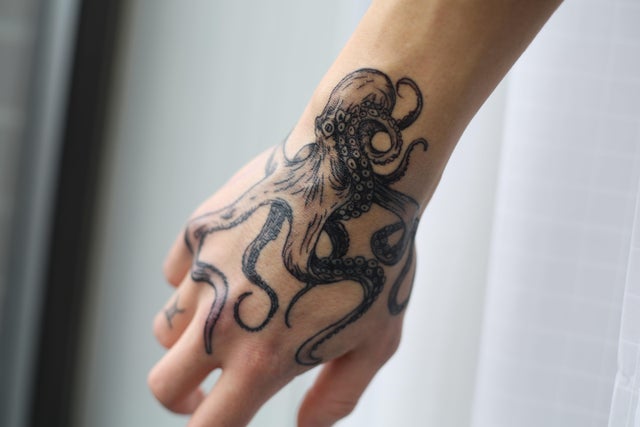
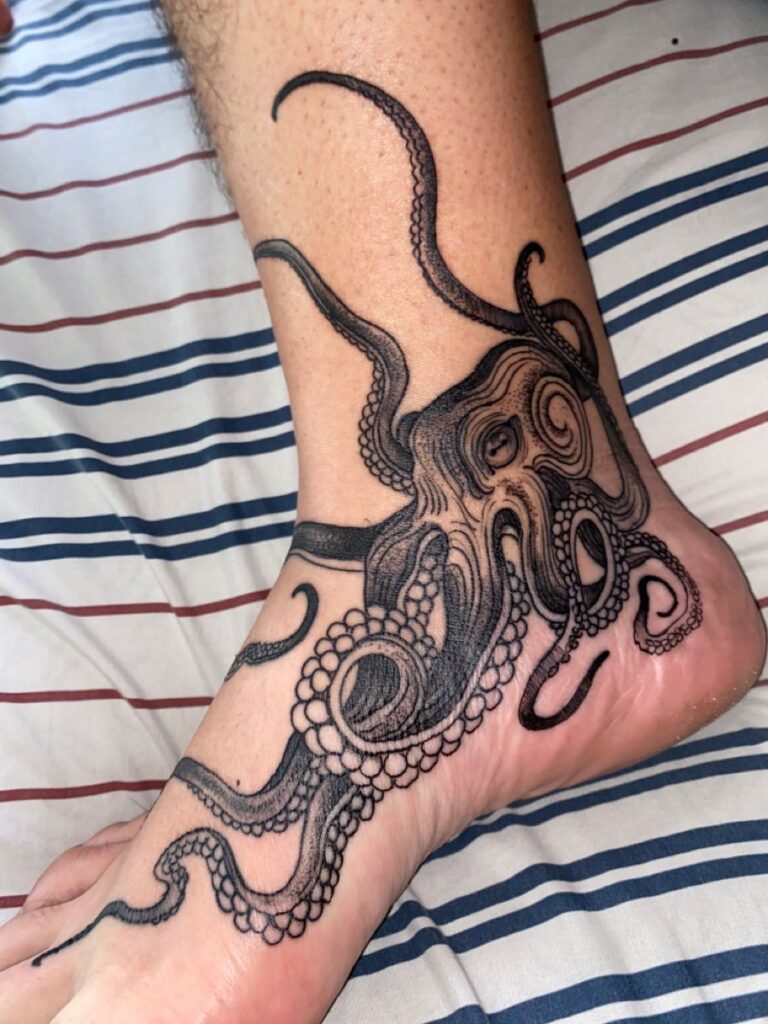
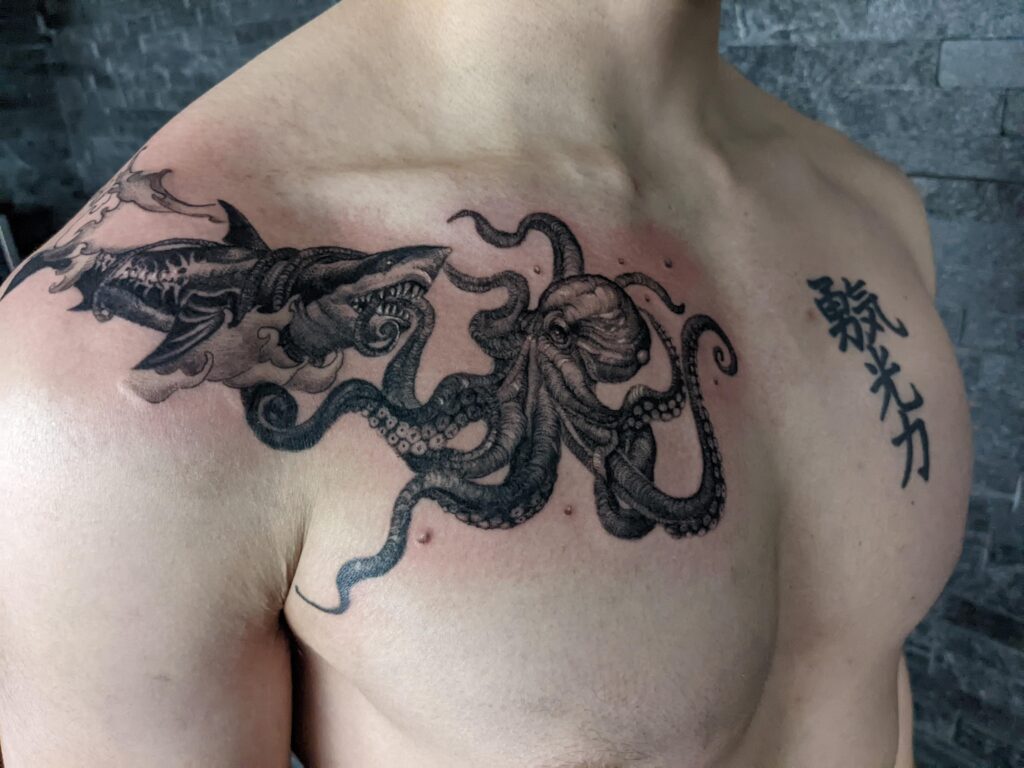
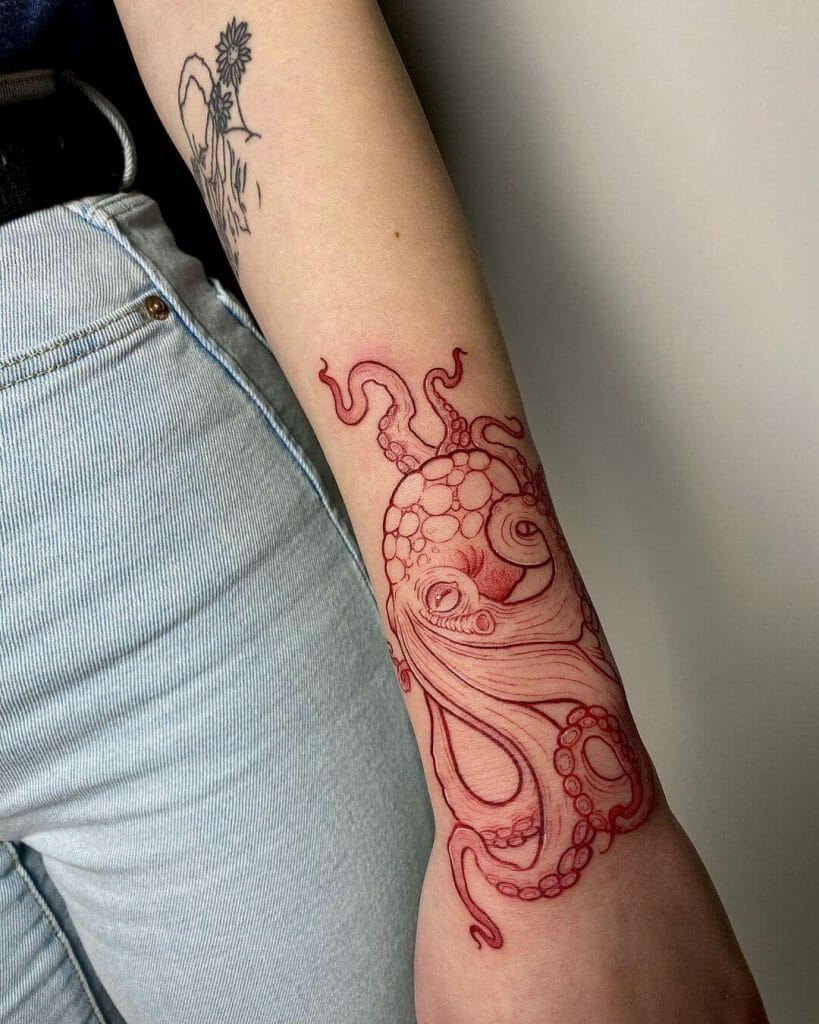
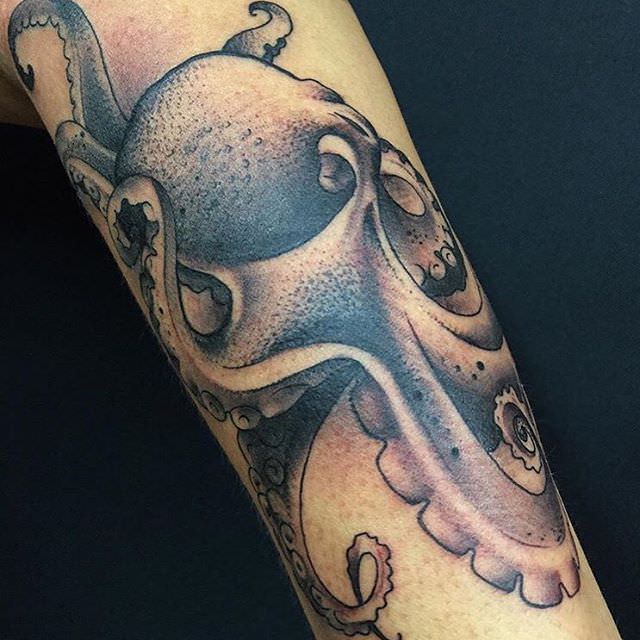
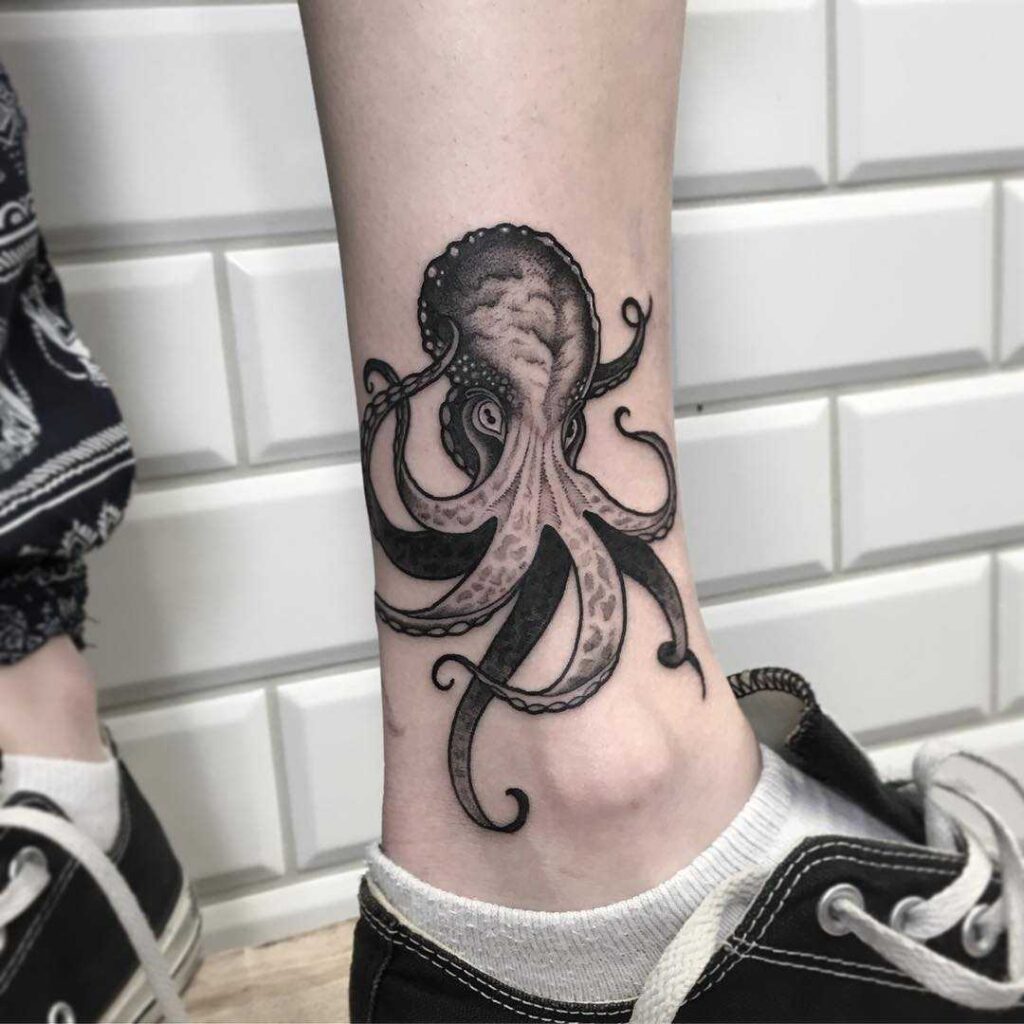
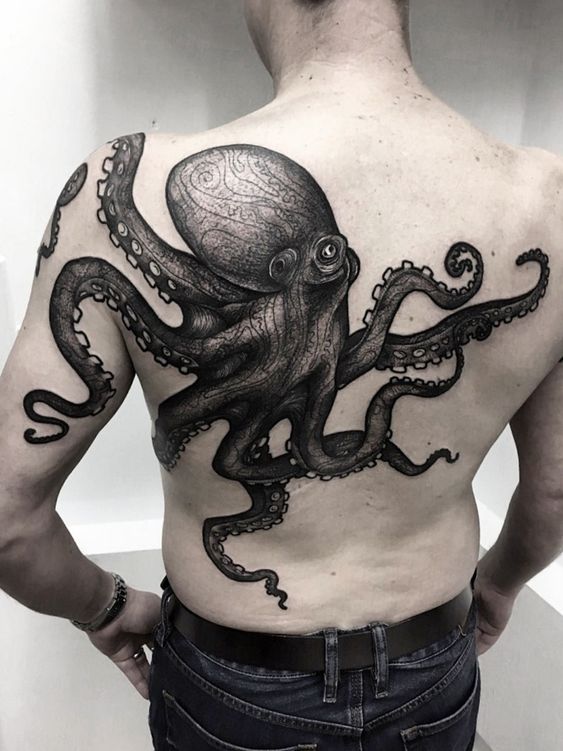
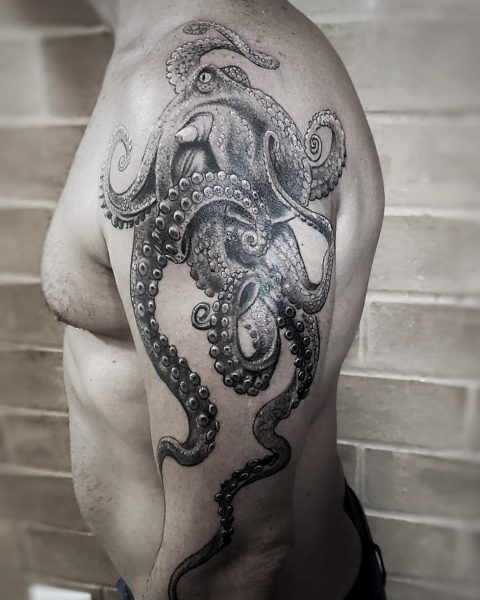
Which tattoo style to choose for a octopus tattoo?
There are many different tattoo styles that can be used to create an octopus tattoo, and the best style for you will depend on your personal preferences and the design of the tattoo. Some popular styles for octopus tattoos include traditional, neo-traditional, watercolor, and realistic.
Traditional octopus tattoos often feature bold lines and bright colors, and are often inspired by the classic tattoo designs of the early 20th century. Neo-traditional octopus tattoos are similar to traditional tattoos, but may incorporate more modern elements and techniques, such as shading and gradients.
Watercolor octopus tattoos feature softer, more flowing lines and a diffuse, painterly effect, and are often used to create a more expressive and abstract design. Realistic octopus tattoos are characterized by their highly detailed and lifelike appearance, and may incorporate elements such as texture and shading to create a more realistic effect.
Calculate the Octopus tattoo cost
Estimated cost: $
Ultimately, the best tattoo style for you will depend on your personal preferences and the design of the tattoo. It may be helpful to speak with a tattoo artist about your options and to consider the pros and cons of different styles before making a final decision.
